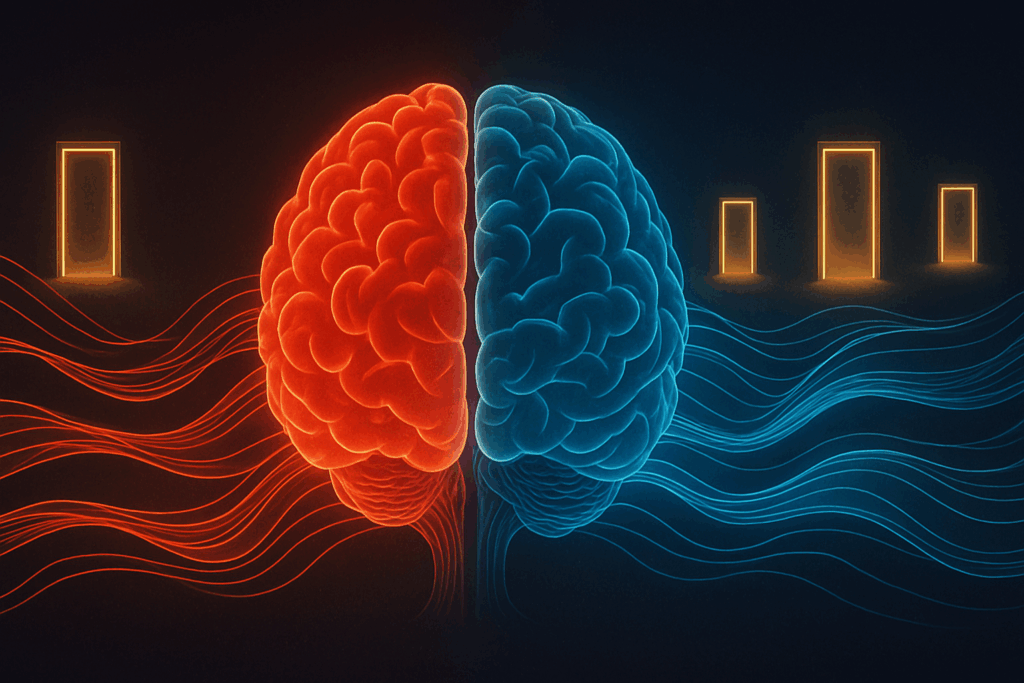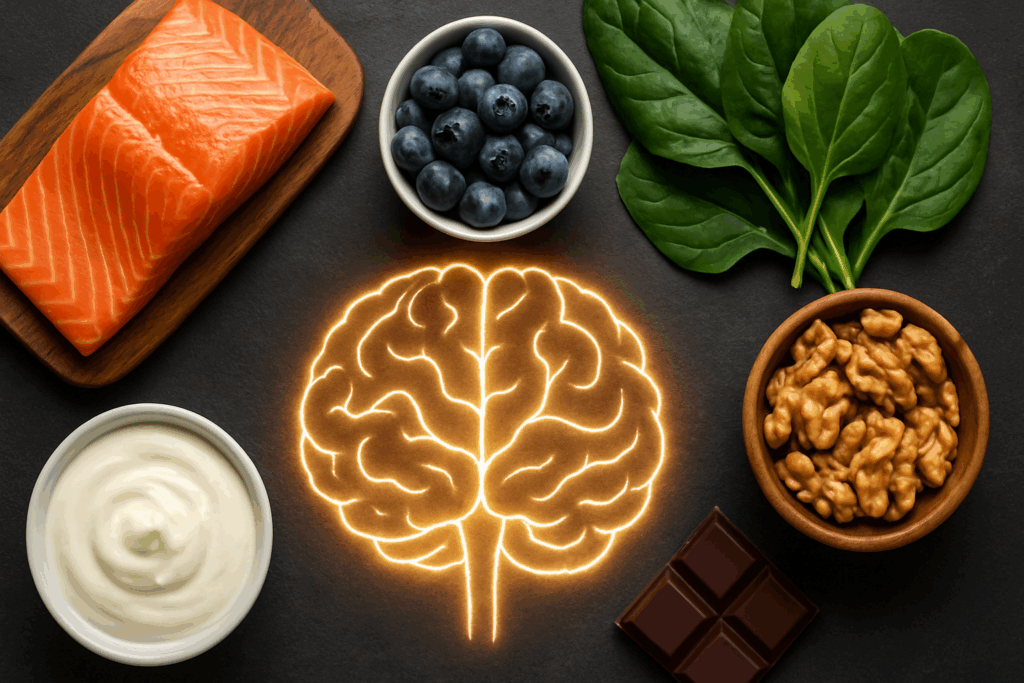Introduction: The Connection Between Decision Making Psychology and Natural Foods
Decision making psychology has long fascinated scholars, philosophers, and scientists. Understanding the cognitive processes that influence how people make decisions is central to advancing fields ranging from behavioral economics to mental health. However, there is an often-overlooked dimension to decision making psychology: the critical role of nutrition. Today, research is beginning to reveal how natural foods can subtly yet profoundly impact cognitive functions, emotional regulation, and the neurological pathways involved in making choices. As we explore the definition of decision making in psychology, and ask fundamental questions like “how do people make decisions?”, we must consider how a healthy diet supports the neural systems that underpin good decision making ability. This article delves deeply into these interconnected subjects, offering a comprehensive look at how what we eat can shape how we think, decide, and act.
You may also like: Navigating Life: Anxiety’s Impact on Decision-Making
Defining Decision Making Psychology: What It Means and Why It Matters
The definition of decision making in psychology refers to the mental processes that lead individuals to choose between different courses of action. These processes involve evaluating information, weighing potential outcomes, and selecting an option that best aligns with personal goals or social norms. Decision making psychology examines these intricate operations, seeking to understand both rational models of choice and the often-irrational patterns humans display. Grasping the definition of decision making in psychology is essential not only for clinical professionals but also for educators, employers, and individuals striving to enhance their cognitive skills. Within this framework, questions like “how do people make decisions” become essential to understanding human behavior at every level. Moreover, studying decision making psychology allows us to design environments, from classrooms to workplaces, that nurture better decision outcomes. The growing body of research points to the profound effects that internal factors, such as emotional states and biological conditions, can have on our decisions, further underscoring the importance of holistic well-being, including nutrition.

How Do People Make Decisions? Exploring Cognitive and Emotional Influences
When asking “how do people make decisions,” it becomes apparent that choices arise from a complex interplay of cognitive processing, emotional evaluation, and even unconscious biases. The brain relies on both “hot” emotional systems and “cold” logical systems to reach conclusions. Emotional states can accelerate or derail rational thought, explaining why stress or fatigue often results in poor choices. Decision making psychology has shown that neurotransmitters like dopamine, serotonin, and acetylcholine play pivotal roles in influencing decision outcomes. In parallel, nutrition significantly affects neurotransmitter availability. For instance, deficiencies in key nutrients like omega-3 fatty acids, magnesium, and B vitamins can compromise cognitive clarity and emotional regulation, leading to impulsivity or indecisiveness. Thus, the question of how do people make decisions is intertwined with biological readiness, which itself can be nurtured through mindful eating practices that prioritize brain-boosting foods.
Understanding the Steps of Decision Making: From Awareness to Action
To truly grasp decision making psychology, it is important to break down the stages involved in the process. Although various models exist, many scholars agree there are generally five to eight steps of decision making. The 5 steps of decision making include identifying the problem, gathering information, evaluating alternatives, making the choice, and reviewing the decision. However, in more elaborate models, such as the 7 step decision making process or the eight steps in the decision making process, stages like identifying decision criteria and weighing options independently are added. A common inquiry arises: “how many steps are in the decision making process?” The answer depends on the model, but whether we discuss five, seven, or eight, the progression remains logical and cumulative. Crucially, the very first phase—problem recognition—addresses “which step comes first in the decision making process.” Without awareness of a choice needing to be made, no other step can proceed. Furthermore, “what is the second step in the decision making process” usually involves gathering relevant information, highlighting the brain’s reliance on memory and knowledge—areas deeply impacted by nutrition. Foods rich in antioxidants and healthy fats, for example, enhance memory recall, illustrating a practical intersection between diet and the effectiveness of each decision making step.

The Purpose Behind Every Decision: Clarifying Cognitive Intent
Asking “what is the purpose of a decision” directs attention to the goal-oriented nature of human cognition. Decisions serve the ultimate function of problem solving, achieving personal aims, or adhering to societal standards. Decision making psychology emphasizes that purposeful decision making correlates strongly with cognitive clarity and emotional balance. When the brain is supported through optimal nutrition—such as through diets abundant in leafy greens, berries, fatty fish, and whole grains—cognitive intent sharpens. This enhancement helps individuals navigate the five decision making steps, the 7 steps of decision making, and even the eight steps in the decision making process with greater efficiency and less mental fatigue. Purposeful decision making also has far-reaching implications for workplace success, educational achievement, and interpersonal relationships, domains where development decision making skills can make a profound difference.
The Role of Memory in Decision Making: What You Read for Exams and Beyond
Memory plays an indispensable role in decision making psychology. To make informed decisions, individuals must draw upon past experiences, factual knowledge, and previously acquired skills. This reality ties closely to strategies people use when preparing for exams, such as “what you read for exams” and “how to remember stuff when studying.” When students ponder how to memorize something for a test or how to remember things while studying, they are engaging in foundational exercises that mirror real-world decision-making skills. Nutritional interventions can significantly enhance these processes. For instance, foods high in flavonoids—such as blueberries and dark chocolate—have been shown to boost memory consolidation. Similarly, omega-3-rich foods like walnuts and salmon support synaptic plasticity, making it easier to recall information under pressure. Thus, optimizing what you read for exams and improving how you remember things while studying feeds directly into better decision making ability across all life domains.

Cognitive Development Through Decision Making: Building Lifelong Skills
Development decision making is not limited to childhood or adolescence; it continues across the lifespan. Every time individuals face a new challenge or opportunity, they engage in the decision making process, refining their ability to evaluate risks and benefits. Research in decision making psychology demonstrates that this development can be accelerated through targeted interventions. One such intervention is nutritional enhancement. Foods that support neurogenesis, such as turmeric with its active compound curcumin, or leafy greens rich in folate, aid cognitive development, strengthening neural circuits essential for decision making. By supporting brain health with strategic dietary choices, people can reinforce all stages of decision making, from initial problem recognition through final evaluation. This developmental arc is critical not only for personal growth but also for leadership, where decision making at work examples abound, illustrating how high-stakes environments demand finely tuned cognitive abilities.

Good Decision Making Is Related to Being Cognitively Nourished
In decision making psychology, it is clear that good decision making is related to being cognitively, emotionally, and physically nourished. Malnourished brains are prone to cognitive distortions, impulsivity, and emotional reactivity—all of which can sabotage even the most rational decision-making frameworks. Studies have shown that poor diet correlates with higher rates of decision fatigue, a condition where mental resources are depleted, leading to suboptimal choices. Conversely, diets high in nutrients like magnesium, vitamin B12, and zinc promote resilience against cognitive decline. Understanding that good decision making is related to being well-nourished elevates the conversation about health from merely avoiding disease to optimizing life’s daily challenges. Whether navigating the five stages of decision making process, listing the steps of decision making process, or engaging in complex development decision making scenarios, nutrition emerges as a foundational tool.
List the Steps of Decision Making Process: Cognitive Checkpoints for Better Choices
To list the steps of decision making process comprehensively, it is useful to integrate findings from multiple psychological models. The five decision making steps typically are: (1) Identify the problem, (2) Gather information, (3) Evaluate alternatives, (4) Choose an option, and (5) Reflect and learn. In models featuring seven steps of decision making, researchers add more granularity, breaking down evaluation and implementation stages. The seven steps of decision making may include defining goals, generating alternatives, assessing consequences, selecting the optimal choice, implementing it, monitoring results, and learning from outcomes. Asking “how many steps are there in the decision making process” acknowledges that while the framework varies, the brain’s requirements for focus, memory, and emotional regulation remain constant. Hence, supporting these cognitive checkpoints through brain-nourishing foods becomes a strategy not just for health but for superior decision making outcomes.
Decision Making at Work Examples: The Cognitive Edge Through Nutrition
Real-world decision making at work examples reveal the high stakes involved when cognitive functions are compromised. From project managers allocating resources to healthcare professionals diagnosing patients, every critical decision demands acute focus, emotional intelligence, and mental stamina. Decision making psychology research confirms that nutrition can tip the scales between success and error. Diets high in refined sugars and trans fats have been associated with cognitive sluggishness and mood disorders, both of which can impair professional judgment. In contrast, adopting a Mediterranean-style diet rich in fruits, vegetables, whole grains, lean proteins, and healthy fats has been linked to sharper executive function and greater resilience under pressure. These dietary patterns can significantly impact decision making ability, helping professionals move fluidly through the five steps of decision making or even the more complex seven steps in the decision making process.
Foods That Enhance Decision Making Ability: Science-Backed Choices
Several natural foods have been scientifically validated to support decision making ability. Fatty fish like salmon provide ample omega-3 fatty acids essential for neurotransmitter function and membrane fluidity. Blueberries, rich in antioxidants, have been shown to improve memory and processing speed, directly enhancing the cognitive steps involved in decision making. Leafy greens such as spinach and kale deliver folate and magnesium, nutrients tied to better emotional regulation and reduced cognitive fatigue. Nuts and seeds provide a robust mix of healthy fats, proteins, and micronutrients critical for sustained mental energy. Fermented foods like yogurt and kimchi introduce beneficial probiotics that influence the gut-brain axis, an emerging field showing how gut health affects cognition and emotional states crucial for decision making. Integrating these foods into daily nutrition strategies empowers individuals to navigate the decision making process—whether they are contemplating what is the third step in the decision making process or managing eight steps in the decision making process—with greater clarity and confidence.

Frequently Asked Questions (FAQ): Understanding Decision Making Psychology and How Natural Foods Support Cognitive Choices
1. Can natural foods really influence decision making psychology?
Absolutely. Emerging research shows that nutritional factors directly affect neurotransmitter synthesis, cognitive processing speed, and emotional regulation, all critical elements in decision making psychology. While traditional studies have focused on cognitive models, a more integrated perspective now explores how diet modulates brain chemistry and decision outcomes. Foods rich in omega-3s, antioxidants, and B vitamins can create a more favorable neural environment for making decisions. Understanding how people make decisions is not only about logical reasoning but also about ensuring the brain is biologically primed for clear thought.
2. How do people make decisions when facing chronic stress, and can nutrition help?
Chronic stress alters the neurobiology of decision making, shifting choices toward impulsivity and short-term gains. Decision making psychology identifies this stress-induced bias as a major challenge in both personal and professional contexts. Natural foods rich in adaptogens like rhodiola or ashwagandha, along with magnesium-rich greens, help regulate the hypothalamic-pituitary-adrenal (HPA) axis. Thus, understanding how people make decisions under stress reveals that nutritional support can buffer stress responses and promote more thoughtful, future-oriented choices. The definition of decision making in psychology increasingly includes biological resilience as a component of effective decision making.
3. How does sleep deprivation impact decision making psychology, and can diet counteract it?
Sleep deprivation leads to poor impulse control and riskier decisions, a well-documented phenomenon in decision making psychology. Although getting enough sleep is paramount, diet can partially mitigate these effects. Nutrients like tryptophan, found in turkey and eggs, promote serotonin production, aiding better sleep quality and cognitive recovery. When asking how do people make decisions after a poor night’s sleep, it becomes clear that individuals often rely on habitual patterns rather than deliberate analysis. Supporting brain health nutritionally ensures that even when sleep is compromised, decision making retains a degree of stability.
4. Are there gender differences in decision making psychology that nutrition can influence?
Gender differences in decision making psychology have been documented, with women often favoring collaborative and consensus-based decisions and men sometimes leaning toward competitive strategies. These patterns are influenced by hormonal differences, especially in neurotransmitter systems. Nutrition plays a role here, as diets high in phytoestrogens, such as flaxseeds and soy, can subtly affect hormonal balance. Exploring how people make decisions through a gendered lens highlights the importance of tailored dietary strategies. Incorporating gender-specific nutritional insights helps refine the evolving definition of decision making in psychology.
5. How do gut health and microbiome diversity influence decision making psychology?
Recent studies suggest that gut microbiota composition can significantly affect cognitive flexibility and emotional stability, both central to decision making psychology. The gut-brain axis facilitates bi-directional communication that can enhance or impair decision processes. Probiotic-rich foods like kefir, kimchi, and yogurt contribute to a healthier microbiome, potentially leading to better decision outcomes. Understanding how people make decisions must now account for these biological underpinnings beyond traditional cognitive theories. As the definition of decision making in psychology evolves, gut health is increasingly recognized as an influential factor.
6. Can regular consumption of certain foods accelerate decision making development in adolescents?
Yes, adolescence is a critical period for the maturation of brain regions involved in decision making psychology, such as the prefrontal cortex. Consuming foods rich in choline, like eggs and broccoli, supports myelination and synaptic development essential for mature decision making. When exploring how do people make decisions at different life stages, adolescence stands out as a time when nutritional interventions can have outsized effects. Early dietary support can accelerate the acquisition of executive functions and better judgment skills. Thus, updating the definition of decision making in psychology for youth includes emphasizing the role of targeted nutrition.
7. How does decision fatigue relate to decision making psychology, and can foods help prevent it?
Decision fatigue refers to the deteriorating quality of decisions after a long session of decision making, a phenomenon increasingly studied within decision making psychology. Stable blood sugar levels, maintained through complex carbohydrates like oats and quinoa, can significantly reduce cognitive decline over time. When considering how do people make decisions late in the day, it becomes apparent that energy availability plays a decisive role. Natural foods that sustain metabolic energy without drastic insulin spikes are key allies. As a result, the evolving definition of decision making in psychology increasingly factors in nutritional stamina.
8. How do social settings influence how people make decisions, and what role does nutrition play?
Group dynamics often skew decision outcomes due to peer pressure or conformity effects, a key concern within decision making psychology. Foods that support serotonin and dopamine regulation, such as bananas and almonds, may enhance emotional self-regulation during social interactions. Understanding how people make decisions collectively requires attention to the emotional and cognitive resilience that diet can bolster. In settings where groupthink is a risk, individuals fortified by optimal nutrition may better maintain independent critical thought. This nuanced view deepens the modern definition of decision making in psychology.
9. Is intuition a part of decision making psychology, and can certain foods enhance it?
Intuition, often described as “fast thinking,” plays a substantial role in decision making psychology, particularly when quick judgments are needed. Foods rich in omega-3s and antioxidants, such as walnuts and blueberries, help maintain the brain’s default mode network, which is linked to intuitive processing. Asking how do people make decisions under time pressure often reveals the interplay between intuition and conscious reasoning. While intuition has sometimes been viewed skeptically, evidence now shows that it can be honed through cognitive and emotional health. The expanding definition of decision making in psychology increasingly acknowledges intuition as a legitimate, biologically-grounded process.
10. What future developments might reshape how we understand decision making psychology?
The future of decision making psychology will likely involve integrative models that combine cognitive science, nutrition, microbiology, and wearable tech monitoring brain states in real time. Understanding how do people make decisions will expand to include variables such as gut-brain communication, genetic predispositions, and even environmental exposures. Personalized nutrition plans based on individual neurochemical profiles may soon be used to optimize decision making ability. These developments promise to deepen and diversify the definition of decision making in psychology. As research advances, the practical applications for improving both individual and collective decision making through holistic approaches will become even more accessible and impactful.

Conclusion: Elevating Decision Making Psychology Through Nutrition and Cognitive Care
In understanding decision making psychology, it becomes abundantly clear that how people make decisions hinges not only on abstract cognitive models but also on tangible, biological realities. The definition of decision making in psychology encompasses mental processes that are deeply influenced by neurotransmitter function, emotional balance, and cognitive stamina—all of which can be profoundly impacted by diet. As we navigate the five steps of decision making, the 7 step decision making process, or even the eight steps in the decision making process, it is vital to recognize the biological substrates that support these complex cognitive actions. Natural foods rich in essential nutrients can bolster decision making ability, enhance memory for what you read for exams, and improve how you remember stuff when studying. In sum, nourishing the body is inseparable from nourishing the mind. As we strive to master the steps of decision making and apply good decision making at work examples to our daily lives, embracing a nutrition-forward approach offers a powerful, evidence-based pathway toward sharper, more resilient decision making.


